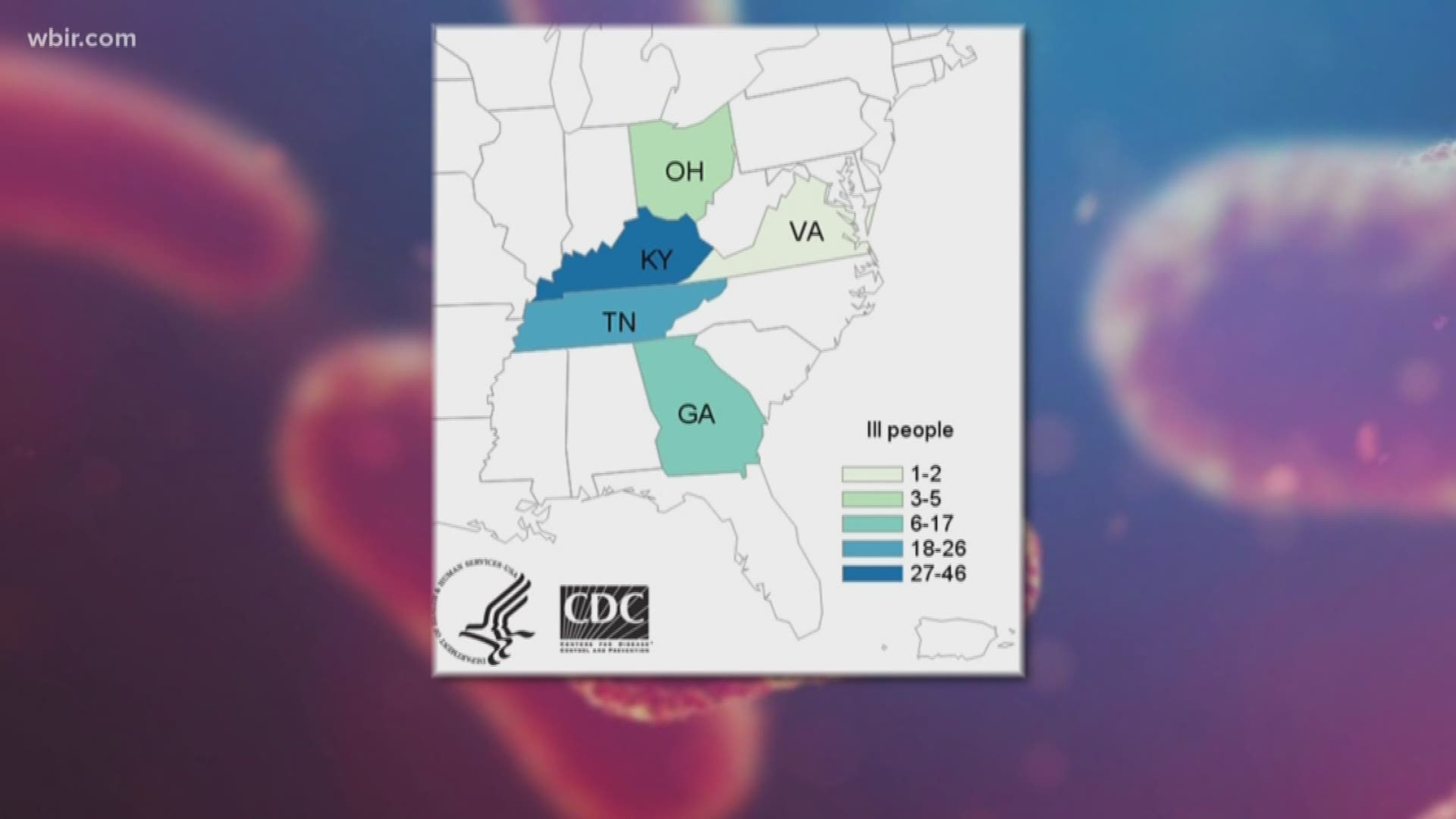KNOXVILLE, Tennessee — Update (5/14/19): Knox County Health Department officials confirmed to 10News that the county had recorded 15 total cases of E. coli associated with a national outbreak as of May 14.
The national outbreak has affected at least 196 people across 10 states since March 1, according to the CDC.
Kentucky and Tennessee have had the highest number of cases, with 69 and 55 respectively, followed by Georgia with 49.
At least 28 people have been hospitalized as a result of the illness, and two have had a type of kidney failure.
The outbreak is likely linked to ground beef, the CDC said.
Ground beef collected from a restaurant where some of the sick ate tested positive for the bacteria, and two companies have recalled more than 80 tons of ground beef in recent weeks, although it's not clear if that beef is responsible for the outbreak.
KCHD said the good news is that there is no evidence people in Knox County are still actively becoming ill with this outbreak, as they've had no patients who have become ill recently due to the outbreak.
Original Story (4/12/19): The USDA and FDA are investigating a multi-state outbreak of E. coli that has infected 96 people across five states and hospitalized eleven people as of April 9, the Centers for Disease Control and Prevention said on its website.
No cases of hemolytic uremic syndrome (HUS) or deaths have been reported, according to the CDC.
The ill range in age from a one-year-old to a 74-year-old, the CDC said.
Knox County Health Department officials confirmed to 10News that the county had recorded 10 cases of E. coli as of April 11.
There were a total of 26 cases in Tennessee as of April 9 that were part of the outbreak, the CDC said on its website.
The CDC has not been able to find the cause of the outbreak-- neither a specific food item, grocery store, nor restaurant chain has been identified as the source of infections, the agency said on its website.
46 other cases had been recorded in Kentucky, 17 in Georgia, five in Ohio and two in Virginia.
In most of the cases recorded by the CDC, the illness onset between March 8 and March 23, although there was a spike around March 29.
Cases of the illness that started as far back as March 15 also may still not yet have been reported, the agency noted.
Since Jan 1, 2019, Children’s Hospital treated 13 children sickened from E. coli infection, according to UTMC spokesperson Erica Estep.
"Of those 13 it is unclear how many may be connected to the E. coli 0103 strain from the most recent outbreak. The CDC and state health dept. are investigating," Estep said.
The CDC has not currently started advising consumers or businesses to avoid certain foods but will update that advise if a source of the outbreak is identified.
If you have an infection, the CDC says to:
- Talk to your healthcare provider.
- Write down what you ate in the week before you started to get sick.
- Report your illness to the health department.
- Assist public health investigators by answering questions about your illness.
How can you avoid an infection? The CDC says to wash your hands frequently, cook meats thoroughly to kill germs, thoroughly wash food prep areas or utensils that touch raw meat, wash fruits and veggies before eating and avoid any raw milk or unpasteurized dairy or juice products.
Last but not least, don't prepare food or drinks for other people if you yourself are sick.
For more information from the CDC, click here.

